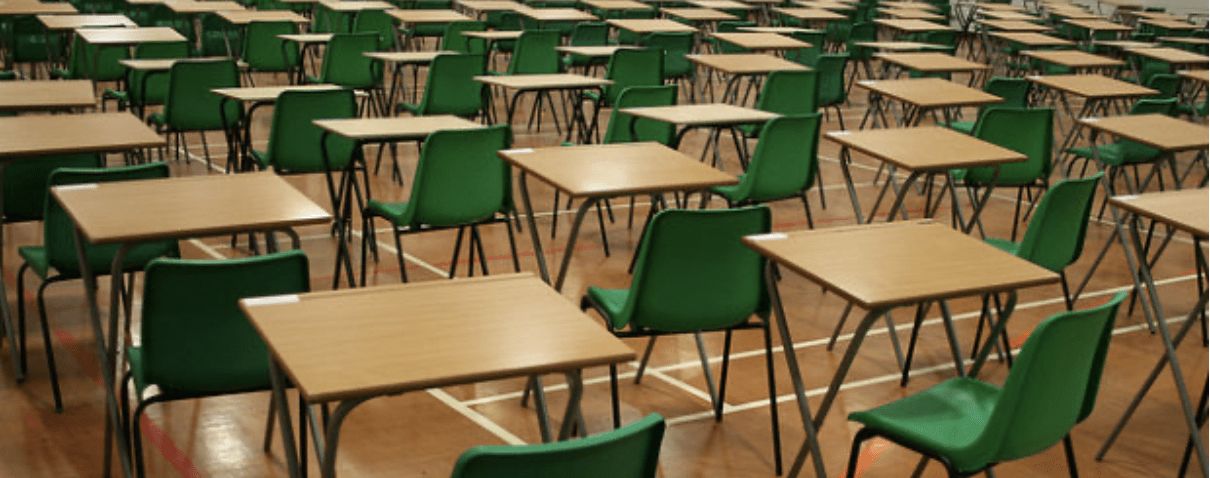GCSE and A level maths students are missing out on a key learning period. How can we help them?
By Blog Editor, IOE Digital, on 15 June 2020
15 June 2020
For GCSE and A level grades this summer, Ofqual will use a system whereby teachers synthesise all the information available to them to assess students. Centres will be asked to rank their students in each subject entry, to allow for moderation in the light of ‘baseline’ data to allow for differences in the cohort, and a school or college’s past performance.
Most in the education community seem to think this is the fairest that can be achieved in the circumstances. Indeed, the outcomes will arguably be fairer to many students than a one-off exam-only system, although inevitably there will be students who will feel under-rewarded.
But what will these GCSEs actually mean? What will that magic grade 4 in a GCSE Mathematics, for example, represent?
My own ongoing research, begun before the pandemic but still continuing, shows that many schools and colleges, in a range of circumstances, have not attempted to set up any structure for home-working for their year 11 and 13 students, or for those retaking GCSEs. Often that’s because they’ve had to prioritise who they develop work for, with some arguing that students will feel they’ve ‘finished the course’ now that grades have been allocated them by teachers. Even where schools and colleges have suggested material, they’re often not expecting students in those years to submit any work. Some centres, though, are expecting those students to work as if in school/college, maybe even pulling together learning in a more holistic way than is always achievable coming up to a range of exams, when students inevitably have divided attention. However, we know, from a variety of emerging evidence that schools might provide, but student response will be variable, and often poor, for a variety of reasons. Consequently, many exam-year learners are not drawing together their learning as they would if they’d prepared for, and taken, examinations. Inevitably, that will have implications for young people’s future thriving, including their confidence, in work or continued education.
My own experience is that mid-March to June is a critical time for the synthesis of learning, and development of a well-founded confidence to make sense of GCSE Mathematics, so that when I’m asked to predict grades in early March I’ve usually felt there were up to 2 or 3 grades to ‘play for’ at that stage. Perceptions might vary across subjects.
The consequence of all this is that for year 11s and ‘retake’ students who don’t get that magic grade 4+ this summer, there might well be a considerable loss of learning that makes it very difficult for them to regroup to make progress by the autumn exam opportunity. We might well be looking at quite a large group of understandably resentful young people who feel they’ve been short-changed by this summer’s system.
Students going on to build directly on their GCSE Mathematics might find they’re accepted onto pathways without having embedded the prior learning they need, despite ‘having the grade’, and receiving teachers or employers will need to be aware of, and accommodate, that. But the long-term effects might be even worse for those who gain their grade 4, or even 5, without ever having consolidated their learning, or gained the confidence to function mathematically that comes from pulling together your learning over the last 11 years into a meaningful whole. When I was teaching GCSE, the run-up to exams was often a very rewarding time for students, despite all the stress, precisely because of that. Such students are unlikely to opt to continue with mathematics unless someone strongly suggests they do, and that could have a very long shadow – again, think primary (or secondary or college!) teachers or nurses or builders or….. future parents. That would have a substantial cost to them as individuals, as well as to us as a society, given our continuing desperate need for a more mathematically-functional population.
My preferred solution is not to treat this summer’s GCSE results as somehow ‘inferior’, but to take advantage of an already-existing suite of qualifications known as ‘Core Maths’. These courses come in six different versions, each worth half an A Level, but for students in possession of a grade 4+ in GCSE Mathematics, offer what all the evidence suggests is a highly effective and motivating course that deepens mathematical literacy and confidence to use mathematics. If we could find ways of incentivising larger-scale participation, we’d all gain.
 Close
Close




